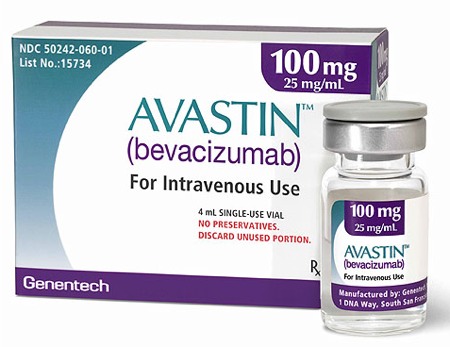Science and Health
Avastin ups heart failure risk in breast cancer
(Agencies)
Updated: 2011-01-05 11:17
 |
Large Medium Small |
|
 Undated file photo of Roche's best-selling cancer medicine Avastin. |
CHICAGO- Women with advanced breast cancer who were treated with Roche's Avastin were more likely to develop heart failure than other women, according to an analysis released on Tuesday that raised more concerns about the already troubled drug.
They found that 1.6 percent of the women who took Avastin developed congestive heart failure compared with 0.4 percent of women who got a placebo.
"Overall, the risk is small, but it is definitely more than the placebo," Choueiri said in a telephone interview.
He said the findings, published in the Journal of Clinical Oncology, add to concerns about Avastin, the world's best-selling cancer medicine with annual sales of $6 billion.
Last month, US regulators recommended that Avastin should no longer be approved for breast cancer. European authorities recommended restricting its use in breast cancer for only one type of chemotherapy.
Avastin, or bevacizumab, has been approved for fighting breast and other cancers, but the drug failed to extend survival in four clinical trials of patients with breast cancer.
Choueiri said his study is the first to show the drug increases the risk of heart failure in breast cancer patients.
His team analyzed results of five clinical trials involving nearly 4,000 women with advanced breast cancer that collected data on heart failure. Three of the studies were published in peer-reviewed medical journals, while two were presented at a breast cancer conference.
He said there was a statistically significant increase in heart failure in women who were treated with Avastin.
That may be due in part to the way the drug works. Avastin blocks vascular endothelial growth factor, or VEGF, which is needed to form blood vessels to feed tumors.
But VEGF is also needed to maintain the heart's structure, Choueiri said, and it may be that blocking VEGF is having a negative effect on women with breast cancer, whose hearts may have already been compromised by other cancer treatments.
Many breast cancer groups and US lawmakers expressed outrage at the FDA's decision on Avastin, charging the agency based its decision on cost, something the FDA is forbidden from doing.
Avastin costs about $8,000 a month in the United States, although Roche caps the annual price at $57,000 per patient.
The company has asked the FDA to reconsider its decision on the drug. Doctors can still prescribe Avastin for breast cancer, but without FDA approval, insurance companies are less likely to pay for it.



